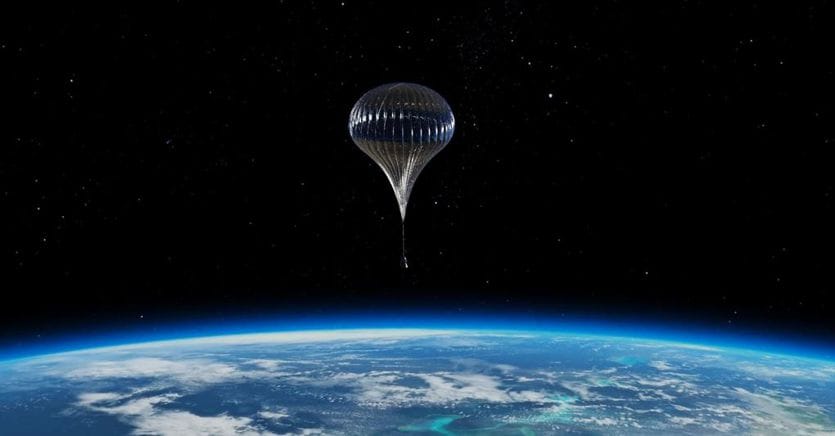Listen to the audio version of the article
Six Italian startups and SMEs in the space sector are putting themselves to the test on the American market: they have been in Houston, the symbolic city of the Apollo lunar exploration program, since the beginning of September, for a full immersion that will last five weeks and end with a meeting with major venture capitalists in the sector.
They are there thanks to the “Space it Up” initiative, a business and internationalization acceleration program started by the Italian Institute for Foreign Trade, ICE, which has an efficient office in that city, and obviously also by the Italian Space Agency, Asi, which supports our businesses and has specific programs for SMEs, there are more than 250 in our country. The American partner is the Space Foundation, an important association between all the stakeholders of this effervescent and increasingly rich sector.
To select the six companies to bring to Houston, among those that had responded to ICE’s public call, the organizers based themselves on the ability to communicate with the American tutors, on the maturity of the company’s business plan, on the level of innovation of the proposal, in short on the ability to show entrepreneurial seriousness to the American market. Whatever happens, Ice requires that the core business remain in Italy for at least 36 months.
The commitment is no small one, it involves staying for 5 weeks in Houston with one or more representatives, interacting continuously with the Space Foundation to understand the American market, its characteristics, improving the business plan, meeting private capital, which in genre does not give discounts or compliments, and arrive with ideas and plans in place on September 27th for a final run with those who can give substantial help to their dreams.
The six companies will therefore also have to clarify what they want from this initiative, whether it is money, knowledge or bonds and relationships, which are practically impossible to develop by staying only in Italy. Because the hallmark of the Space Economy is that it is a global business.
Compared to the Italian one, which is often slow also because it is essentially linked to public funds, the American one is of a completely different kind. It’s true that if you have a good idea and demonstrate that you could make it happen, you’ll probably get the capital to do it, but it’s also true that the startup market there is tremendously selective and the death rate is very high: if you can’t demonstrate that you know how simply do “die”.
Investment in space requires a long time to return, and this also greatly slows down the banking sector, which also does not know the sector well. Here too, the situation in Italy is clearly improving and important banking institutions in our country have research offices that are interested in the Space Economy.
Among the six selected companies, fully engaged in Houston, we find T4l, an established spin-off of the University of Padua that develops innovative propulsion systems for microsatellites and hybrid rockets, which has just signed an important collaboration with the Italian Avio, leader in the sector.
Arca Dynamics instead wants to offer aerospace traffic monitoring and Earth observation services using proprietary nanosatellites.
Novac instead develops solid, moldable supercapacitors for high performance that can also integrate batteries into electric vehicles to allow immediate releases of energy.
Nabu, of Turin, integrates data and information into a single platform that optimize irrigation processes in agriculture.
Delta Space Leonis is the youngest in terms of age, Davide Nejoumi who illustrates it is still a student of aerospace engineering, he has a project developed thanks to funds from the Lazio Region. It is a system of pico satellites, blocks of 5×5 in size and a quarter of a kilo in mass, capable of building a constellation useful for agriculture, the monitoring of bridges and roads and more, all of which can be developed at very low costs. The same company is also testing a deployer for picosatellites, to deploy them into prescribed orbits with a single launch. Five young partners, with a balanced mix of economic, financial and engineering knowledge, are enthusiastic about what they are learning in Houston. They hope to arrive at a possible loan that will allow economic independence in Italy, the spokesperson speaks of 2.5 million dollars.
Involve Space instead develops its Strato Stata project, a pseudo-satellite platform that goes to altitude, 20 – 50 kilometers above the ground, thanks to a sounding balloon that can move thanks to the winds, and to an AI software that controls it, both an impossible characteristic for a satellite to remain over a specific area for as long as necessary. A video camera or other useful tool for monitoring the ground can then be added to the suspended platform. By remaining essentially still on a chosen vertical, it can be used to follow, for example, the evolution of an unfavorable natural event, such as a flood that lasts several days. It is a sort of “flying eye”, as Jonathan Polotto defines it, who is in Houston for Involve Space and who hopes to be able to evaluate in these weeks whether it is appropriate to open a US branch, whether there will be interest from financiers .
One of the interesting and positive characteristics of the companies that accepted the transfer for five intense weeks of activity is the age of the participants, practically all under 30 and this already indicates how in this field, which is currently in full expansion, the rules of the game are changing fast.
—
